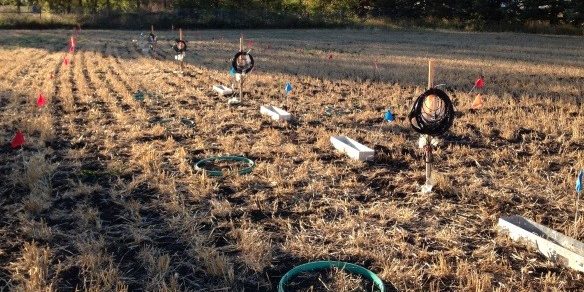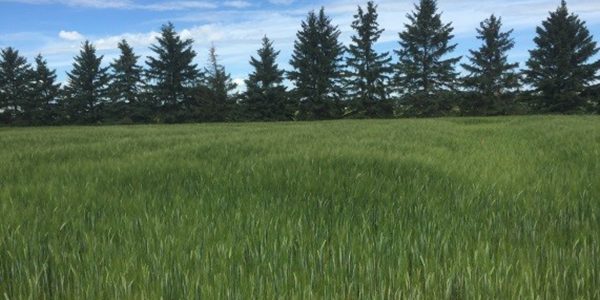As a research group we study carbon and nitrogen dynamics in land ecosystems (defined as land-based, mostly provisioning-focused, managed systems coupled with their associated global ecological footprint via both numerous energy and mass exchange fluxes and effects on species assemblages). For example, we examine sources, transformation, utilization, behavior, fate, and fluxes of carbon and nitrogen in land ecosystems (often also called agroecosystems) with particular focus on the relative responses, controlling factors, and feedbacks of greenhouse gas exchange and soil carbon sequestration to common and improved management options.
Furthermore, field to landscape strategies for sustainable management, greenhouse gas mitigation, climate change adaptation, enhanced resilience, and increased ecosystem services in agricultural systems are also subject of investigation. We aim to deepen, underpin, and extend the existing scientific knowledge on these relevant research areas in order to gain insights, to discover and establish principles, and ultimately to provide solutions for current challenging problems faced by the local, regional and/or global societies including environmental quality, natural resources conservation, and food and energy securities. Moreover, this collective work contributes to inform process modelling efforts, life cycle assessments, and provide the foundation for the development of policy towards carbon-negative and carbon-neutral systems.
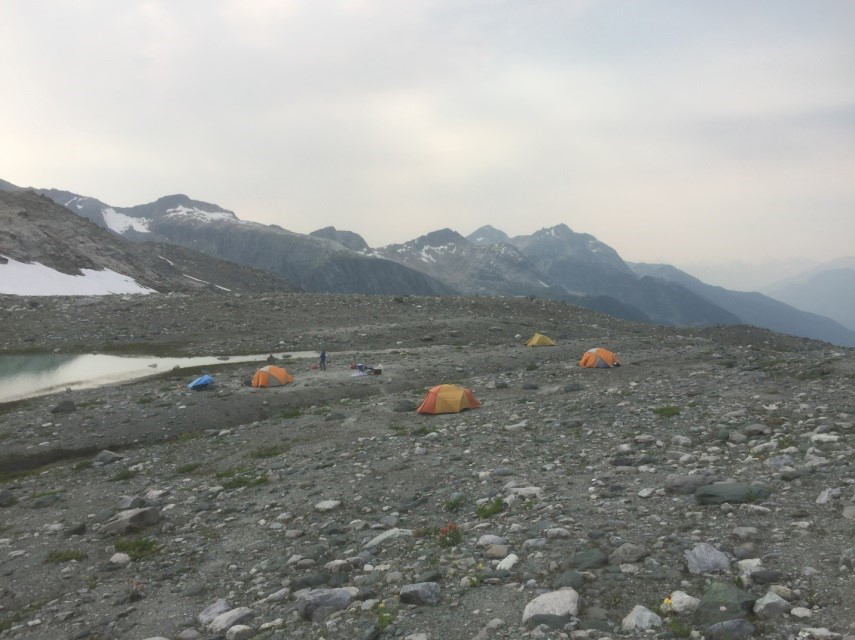
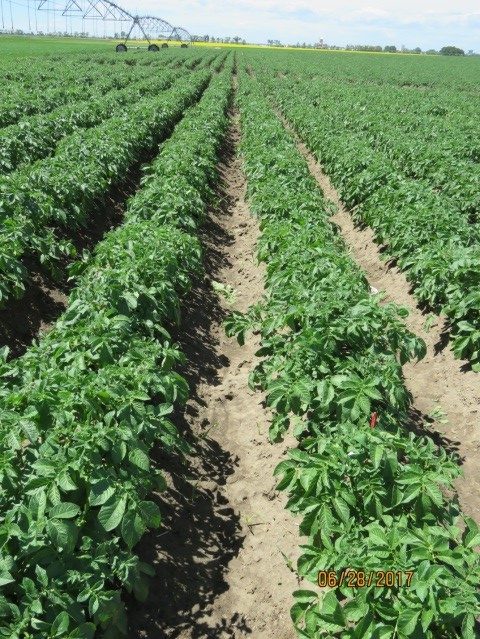
A sample video for one of our research project is embedded below. This is a barley field with automated chamber instrumentation for gaseous flux determination.
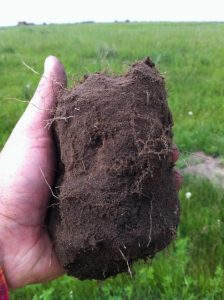
We are grateful for the support towards our research projects provided by our funding partners:
Canadian Foundation for Innovation
Natural Sciences and Engineering Research Council of Canada (NSERC)
Alberta Crop Industry Development Fund (ACIDF)
Alberta Livestock and Meat Agency (ALMA) Sustainability
Climate Change and Emissions Management Corporation (CCEMC) - AI BioSolutions
Agriculture and Agri-Food Canada (AAFC) - Agricultural Greenhouse Gas Program (AGGP)
Several Canadian and international industries
University of Alberta - Teaching and Learning Enhancement Fund (TLEF)
University of Alberta - Rangeland Research Institute
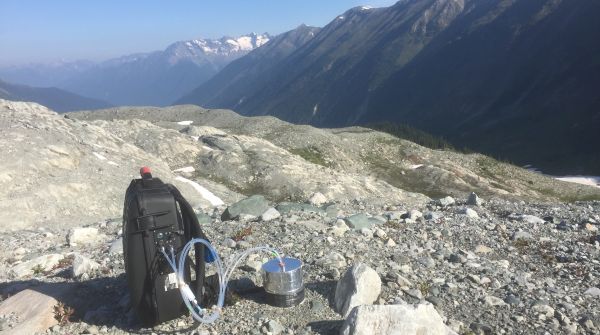
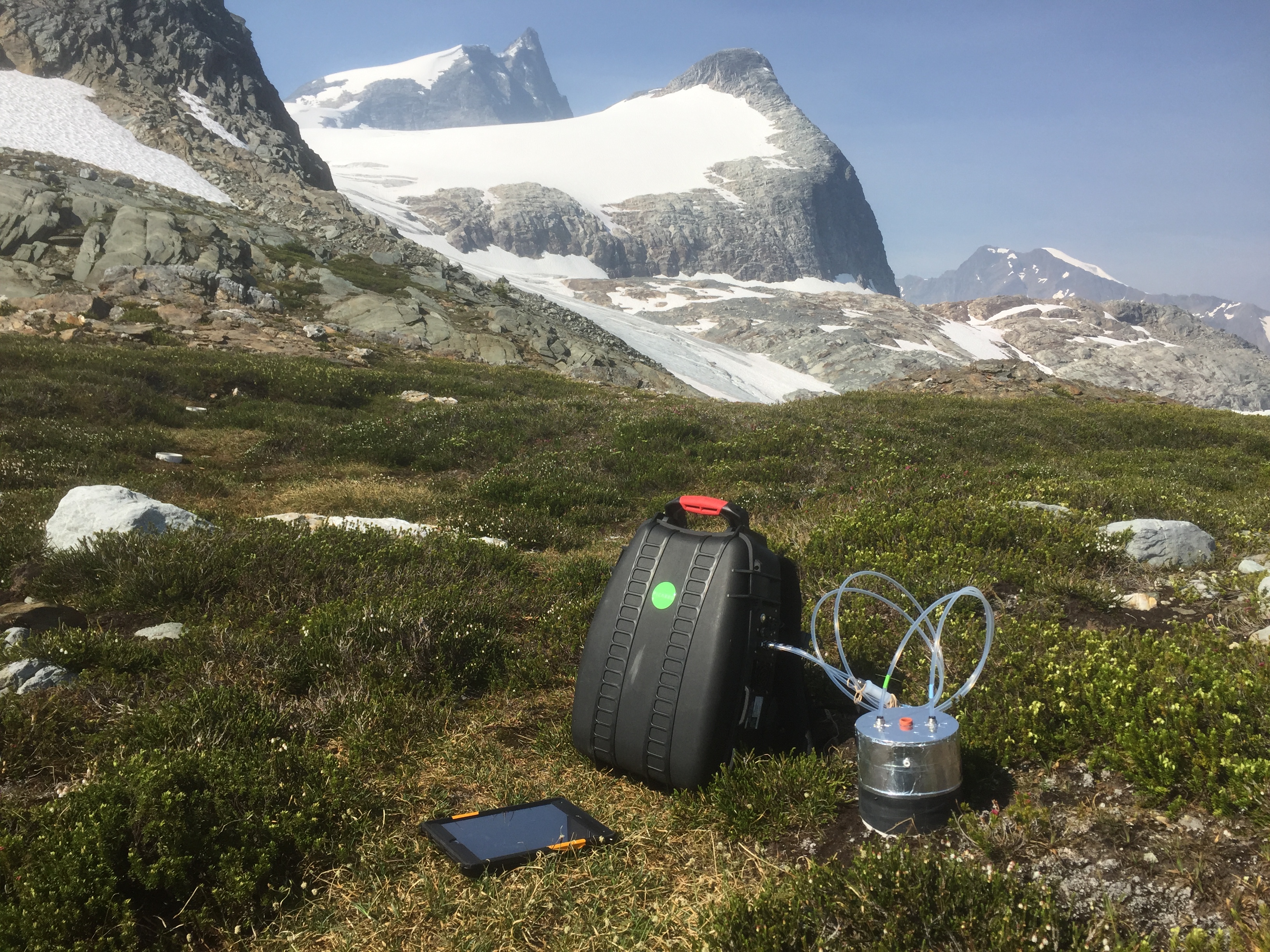
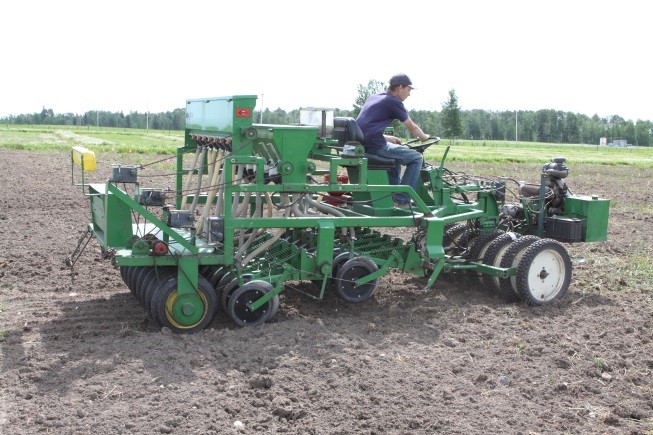
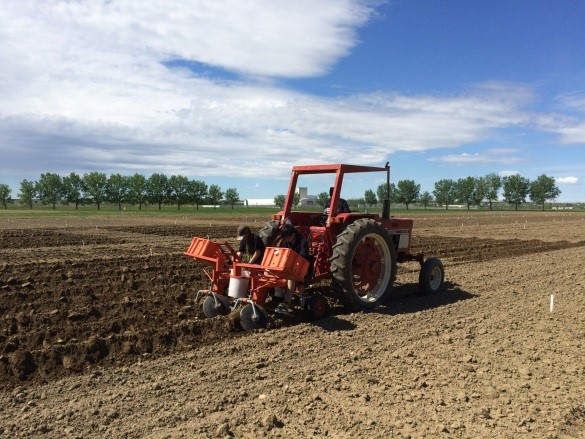
Today is a beautiful day.
As a group, the research interests and foci encompass carbon, nitrogen and water cycling and dynamics in land ecosystems including croplands, grasslands, forests and alpine. For example, we examine sources, transformation, utilization, behavior, fate, and fluxes of carbon and nitrogen in land ecosystems (often also called agroecosystems) with particular focus on the relative responses, controlling factors, and feedbacks of greenhouse gas exchange and soil carbon sequestration to common and improved management options.
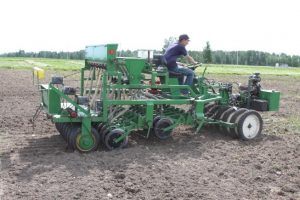
IMPORTANT Research
Furthermore, field to landscape strategies for sustainable management, greenhouse gas mitigation, climate change adaptation, enhanced resilience of soil and whole ecosystems, improved nutrient and water use-efficiencies, and increased ecosystem services in agricultural systems are also subject of investigation. We aim to deepen, underpin, and extend the existing scientific knowledge on these relevant research areas in order to gain insights, to discover and establish principles, and ultimately to provide solutions for current challenging problems faced by the local, regional and global societies including environmental quality, natural resources conservation, and food and energy securities. Moreover, this collective work contributes to inform process modelling efforts, life cycle assessments, and provide the foundation for the development of policy towards carbon-negative and carbon-neutral systems.
Today is a beautiful day.
As a group, the research interests and foci encompass carbon, nitrogen and water cycling and dynamics in land ecosystems including croplands, grasslands, forests and alpine. For example, we examine sources, transformation, utilization, behavior, fate, and fluxes of carbon and nitrogen in land ecosystems (often also called agroecosystems) with particular focus on the relative responses, controlling factors, and feedbacks of greenhouse gas exchange and soil carbon sequestration to common and improved management options.

IMPORTANT Research
Furthermore, field to landscape strategies for sustainable management, greenhouse gas mitigation, climate change adaptation, enhanced resilience of soil and whole ecosystems, improved nutrient and water use-efficiencies, and increased ecosystem services in agricultural systems are also subject of investigation. We aim to deepen, underpin, and extend the existing scientific knowledge on these relevant research areas in order to gain insights, to discover and establish principles, and ultimately to provide solutions for current challenging problems faced by the local, regional and global societies including environmental quality, natural resources conservation, and food and energy securities. Moreover, this collective work contributes to inform process modelling efforts, life cycle assessments, and provide the foundation for the development of policy towards carbon-negative and carbon-neutral systems.
